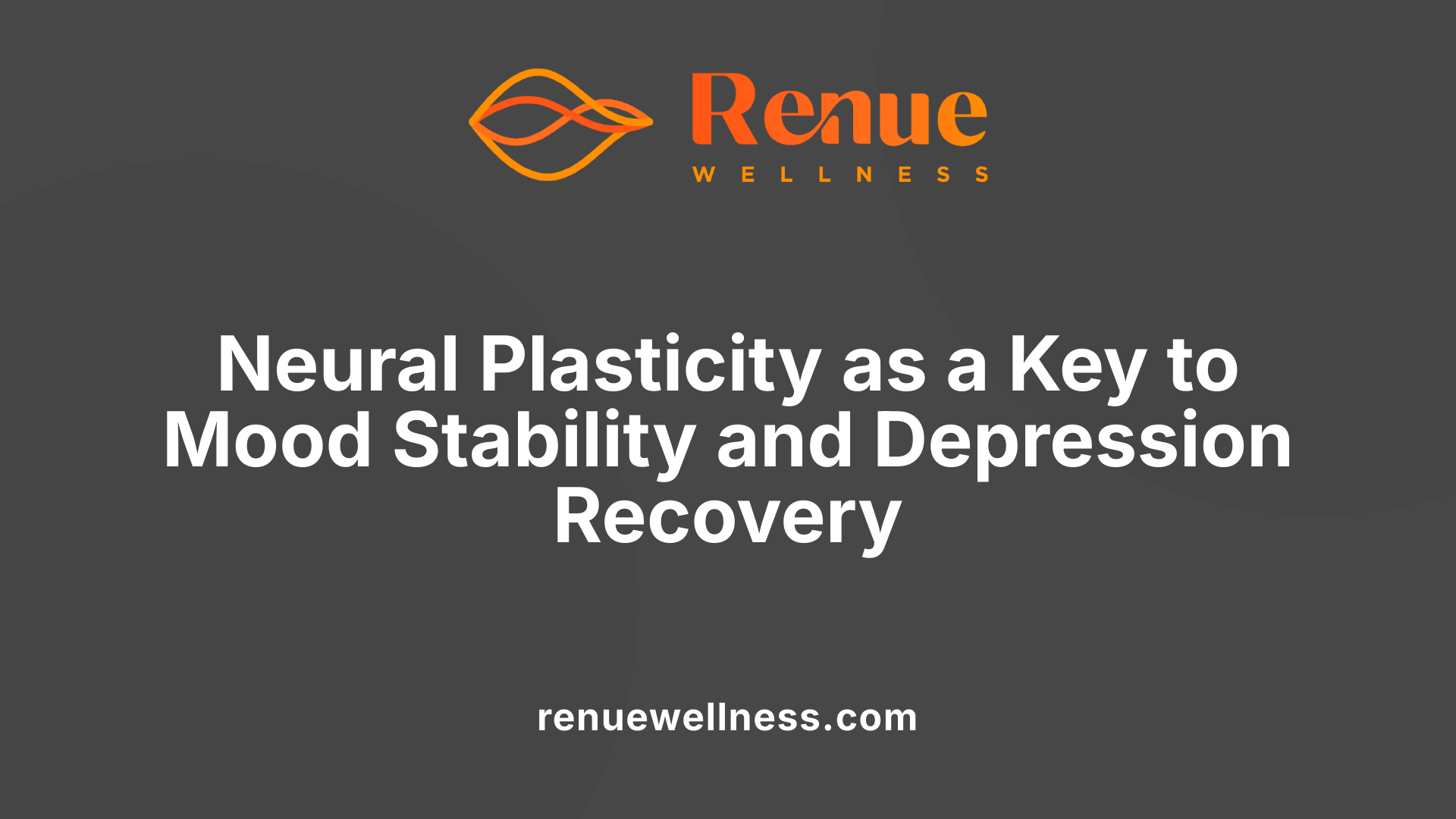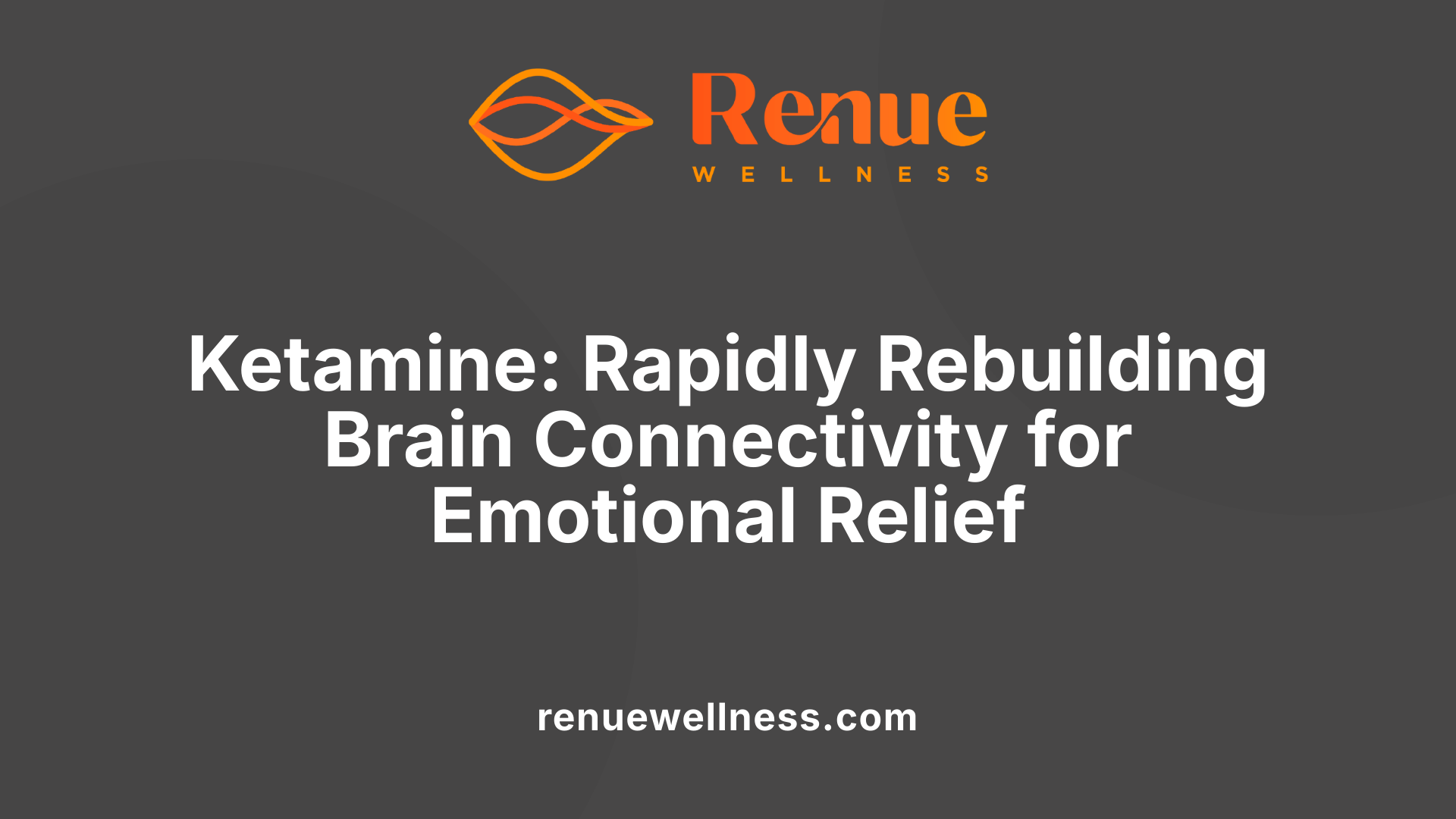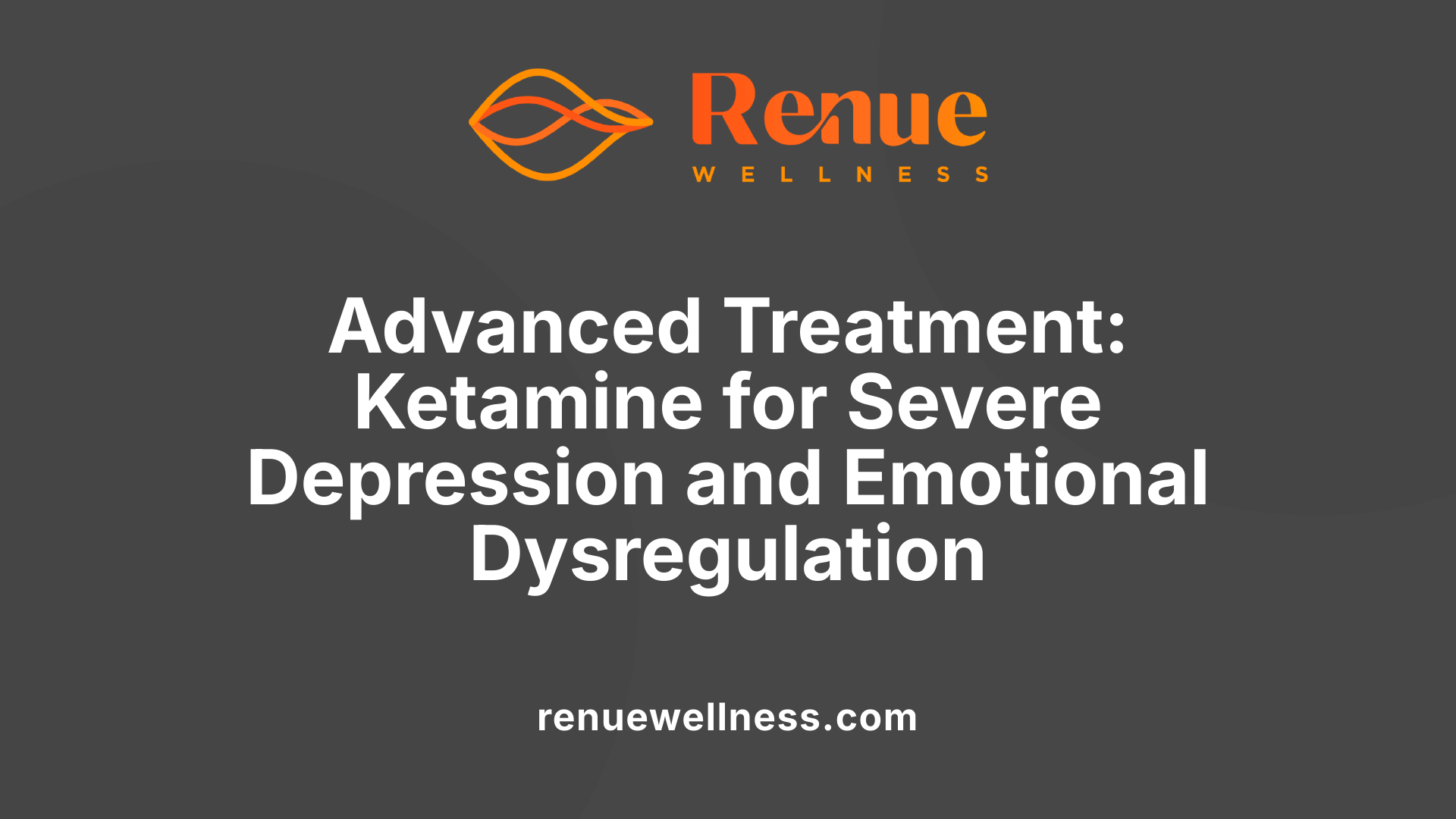Irritability & Rage in Depression: How Ketamine May Calm the Storm


August 26, 2025
Understanding the Storm of Irritability and Rage in Depression
Depression is a complex mental health condition that extends beyond sadness to include intense irritability, rage, and emotional upheaval, often resisting traditional therapies. Recent advances highlight ketamine's rapid and powerful effects in calming these stormy symptoms, offering hope for those with severe, treatment-resistant depression.
The Neurobiological Impact of Chronic Stress and Depression

How does chronic stress affect neurons and their communication?
Chronic stress has profound effects on the brain’s structure and function, especially in regions involved in mood regulation. Repeated stress exposure can lead to the loss of dendritic spines, which are the tiny protrusions on neurons that form synapses—crucial sites for neural communication.
This reduction in dendritic spines impairs the ability of neurons to communicate effectively, disrupting neural circuits that regulate emotions and cognition. Over time, these changes contribute to the development of depressive symptoms, including prolonged sadness, irritability, and feelings of hopelessness.
What happens to the neurons in the prefrontal cortex during stress?
In the prefrontal cortex, a brain area vital for decision-making and emotional regulation, stress causes a significant decrease in dendritic spines. This structural change weakens the connections between neurons, sustaining a cycle of impaired neural communication.
The loss of neural connectivity here impairs the brain’s ability to regulate mood and react adaptively to stressors. Such alterations serve as a biological basis for some of the persistent symptoms of depression, affecting feelings, thoughts, and daily functioning.
Why are these neural changes important for mood and emotional stability?
The deterioration of neural connections caused by stress highlights the importance of neural plasticity—the brain’s capacity to form and remodel synapses. Maintaining healthy neural plasticity is essential for emotional resilience.
Therapeutic approaches like ketamine aim to reverse these neural deficits. By promoting the growth of new dendritic spines and strengthening existing connections, treatments can restore neural circuit function, improve mood stability, and facilitate recovery from depression.
This understanding of how stress damages neural circuits underscores the potential for targeted therapies to rebuild brain connectivity, offering hope for those with treatment-resistant depression and related mood disorders.
Rapid Relief and Neural Circuit Restoration with Ketamine

What are the therapeutic benefits of ketamine in managing severe emotional symptoms like irritability and rage?
Ketamine offers rapid relief from intense emotional symptoms such as irritability and rage, often associated with severe depression. Its mechanism of action involves promoting neural plasticity by blocking NMDA glutamate receptors in the brain. This blockade triggers an increased release of glutamate, which then activates signaling pathways like Brain Derived Neurotrophic Factor (BDNF) and mTOR. These pathways foster the growth of new synapses and strengthen existing neural connections.
This process helps regulate mood and emotional responses, making ketamine particularly effective for symptoms resistant to other treatments. Patients can experience improvements within hours, with the effects sometimes lasting days or even weeks. Repeated infusions may prolong these benefits.
Combining ketamine therapy with psychotherapies such as Cognitive Behavioral Therapy (CBT) or EMDR can further enhance emotional stability. By rapidly reducing symptoms like irritability and rage, ketamine creates an optimal window for other therapeutic interventions, aiding overall recovery and emotional resilience.
Overall, ketamine's unique capacity to strengthen neural circuits addresses the underlying neurobiological factors contributing to severe emotional disturbances, making it an important option for treatment-resistant cases.
Duration of Ketamine's Effects and Maintenance Strategies
How long does ketamine treatment typically last in relieving depression and emotional symptoms?
The length of relief provided by ketamine treatments varies among individuals. Usually, a single infusion can relieve depressive symptoms for a period ranging from a few days up to about two weeks. Many patients notice rapid improvement within hours or a day, with the peak impact occurring around 24 hours after administration.
As the effects gradually diminish, usually after 10 to 12 days, repeated sessions are often recommended. Ongoing treatments might be scheduled weekly or monthly, depending on the patient's response and the severity of symptoms. This approach helps sustain the initial benefits and may support longer-lasting remission.
While single infusions offer quick relief, most treatment protocols involve multiple sessions over several weeks to maintain and enhance the therapeutic effects. This ongoing management is crucial for long-term recovery and stability in cases of severe or treatment-resistant depression.
Stabilizing Mood and Reducing Emotional Storms in Depression

Can ketamine therapy help stabilize mood and reduce emotional storms associated with depression?
Yes, ketamine therapy has shown significant promise in helping stabilize moods and diminish emotional storms in individuals suffering from depression. Its rapid action targets key brain systems to provide relief often within hours of administration.
Ketamine works primarily by modulating the glutamatergic system through blocking NMDA receptors, which leads to a surge in glutamate release. This stimulates the growth of new synapses—a process known as neuroplasticity—that strengthens neural pathways involved in mood regulation.
Clinical studies support its effectiveness, particularly for treatment-resistant depression. For instance, a study involving 201 adults showed that intravenous ketamine led to rapid reductions in depressive symptoms, anxiety, irritability, and suicidal ideation, with improvements seen within hours and lasting up to two weeks.
Repeated doses of ketamine can prolong these benefits, contributing to longer-term mood stability. Additionally, nasal spray formulations like esketamine, which is FDA-approved, further facilitate accessible treatment options.
While long-term safety and optimal maintenance protocols are still under investigation, current evidence indicates that ketamine can significantly reduce emotional volatility and stabilize mood, especially in severe cases. As a result, ketamine stands out as a promising option for rapid and effective management of emotional disturbances linked to depression.
Ketamine in Treatment-Resistant Depression and Severe Emotional Symptoms

What treatment options include ketamine for managing depression with irritability and anger?
Ketamine offers promising options for patients experiencing depression accompanied by irritability and anger, especially when traditional treatments have failed. These options include intravenous (IV) infusions and intranasal spray (esketamine), both of which have gained recognition for their rapid and significant effects.
Typically reserved for treatment-resistant depression, ketamine is administered under medical supervision over multiple sessions. The treatments usually lead to improvements in mood and emotional regulation within hours, making them particularly valuable during acute episodes.
The mechanism behind ketamine's effectiveness involves promoting neuroplasticity—the growth of new neural connections—and increasing glutamate levels in the brain. These effects help to rewiring dysfunctional neural circuits linked to irritability and anger.
Combining ketamine therapy with psychotherapy, such as cognitive-behavioral therapy (CBT), enhances and sustains its benefits. This integrated approach addresses both biological and psychological aspects of mood disorders, helping patients develop healthier coping strategies.
In summary, ketamine provides a rapid, effective treatment for severe depression with irritability and anger, especially when combined with counseling, making it a valuable addition to the therapeutic arsenal for complex mood conditions.
Innovative Approaches: Combining Ketamine with Positive Feedback and Psychotherapy
Enhancing outcomes through positive reinforcement techniques
Recent research highlights the potential of combining ketamine treatment with positive feedback methods, such as computer games featuring encouraging messages and smiling faces. During ketamine therapy, patients experience increased neural plasticity, creating an opportunity to strengthen positive associations in the brain. When designed with care, these reinforcement tools can extend the antidepressant effects, helping patients maintain improvements longer.
Research findings on increased remission durations
A notable study published in the American Journal of Psychiatry involved 154 participants receiving ketamine infusions. It found that those who engaged with computer games that provided positive imagery and feedback remained depression-free for up to three months. In contrast, individuals who only received ketamine without additional positive reinforcement usually relapsed after one or two weeks.
This approach aims to reinforce the neural pathways created during treatment, potentially turning short-term relief into longer-lasting remission. The combination of pharmacological action and behavioral reinforcement offers a promising new frontier in managing severe depression.
Potential for expanding access and reducing costs
Currently, ketamine treatments, especially infusions, can be costly—around $400 per session—and are not covered by many insurance plans. By integrating supportive, low-cost tools like computer games, there is hope to make treatment more affordable and accessible. These digital interventions can be used alongside lower doses or in outpatient settings, reducing dependence on expensive clinical procedures.
This innovative strategy not only aims to amplify treatment effectiveness but also to broaden reach, making hope available to more individuals struggling with depression, trauma, or addiction.
| Method | Description | Benefits | Potential Limitations |
|---|---|---|---|
| Ketamine | Administered as infusion or nasal spray | Rapid relief of symptoms | Needs clinical supervision |
| Computer Games with Positive Feedback | Reinforces neural pathways during plasticity window | Extends duration of remission | Requires technology access |
| Psychotherapy | Supports emotional processing and recovery | Trains coping strategies | Varies in individual response |
Exploring these combined therapies could revolutionize how mental health conditions are treated, emphasizing both quick relief and long-term resilience.
Future Directions and Concluding Insights
Research into ketamine’s effects on the brain continues to evolve, particularly in identifying biological markers that predict individual responses to treatment. This could enable more personalized therapeutic approaches, maximizing benefits and reducing risks.
Potential applications of ketamine extend beyond depression. Current studies are exploring its use for anxiety, PTSD, addiction, and even prevention of postpartum depression, indicating a broadening scope of mental health treatments.
Safety remains paramount. Professional supervision during ketamine therapy is essential to manage dosing, monitor side effects, and ensure appropriate use. Clinicians emphasize that unregulated or recreational use can pose significant health risks.
As research advances, integrating ketamine treatment with psychological therapies, such as CBT or ketamine-assisted psychotherapy, shows promise in enhancing and sustaining effects. The focus on neural plasticity and synapse formation aims to improve long-term outcomes for patients.
Ongoing studies, driven by efforts to understand individual variability, seek to refine protocols that optimize safety, efficacy, and accessibility, potentially transforming mental health care in the future.
The Promise of Ketamine for Calm and Clarity in Depression
As research advances, ketamine stands out as a rapid, effective option for alleviating severe emotional symptoms in depression. Its ability to induce neuroplasticity not only reduces irritability and rage but also fosters a more stable, joyful mental state. When administered in a controlled, professional setting, ketamine offers a beacon of hope for those facing treatment-resistant depression and intense emotional storms, lighting the way toward calmer, more resilient minds.
References
- How ketamine relieves symptoms of depression
- Let's Talk Ketamine for Depression - The Lotus Center
- The effectiveness of ketamine on anxiety, irritability, and agitation
- Two men share their experience with ketamine; a growing treatment ...
- Ketamine: A Rising Star in Mental Health Treatment
- Research Shows Promise in Ketamine Treatments for Postpartum ...
- Ketamine Seen As Possible Breakthrough Drug For Treating Range ...
Recent Posts
Conditions Treated
AnxietyDepressionOCDPTSDPostpartum DepressionPain ManagementSubstance AbuseSuicidal IdeationOur Location


